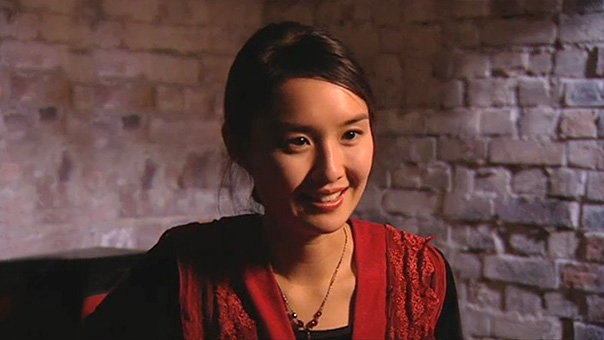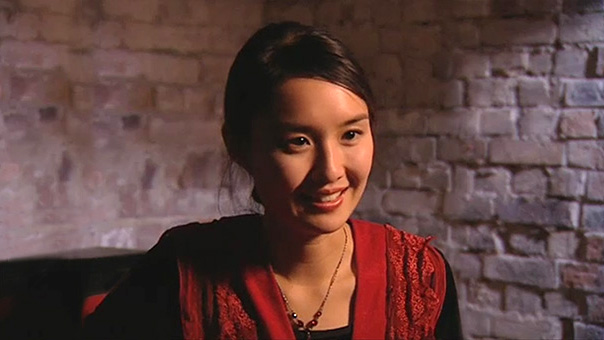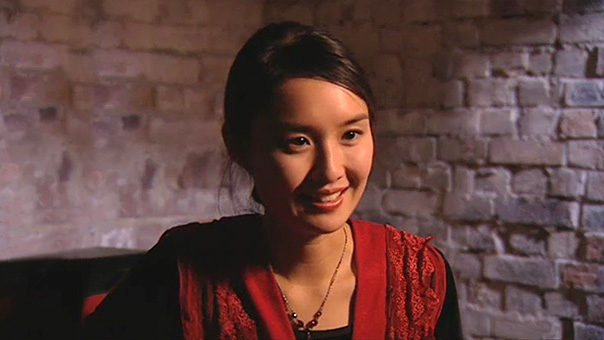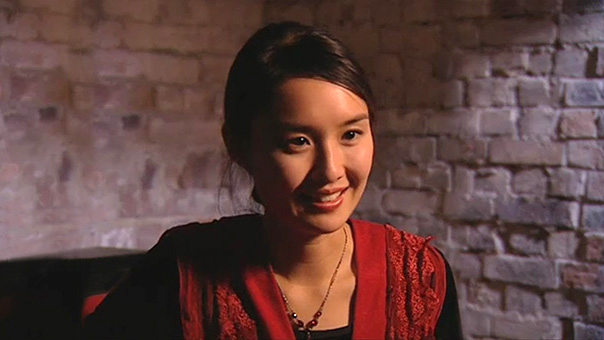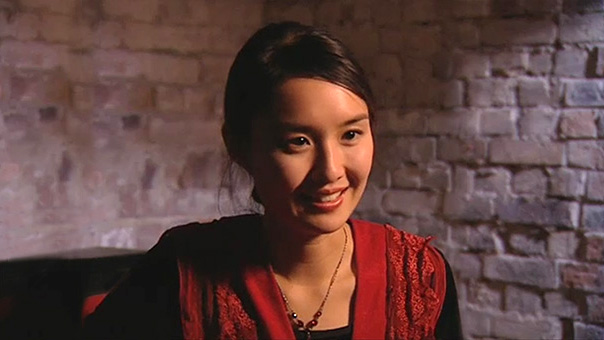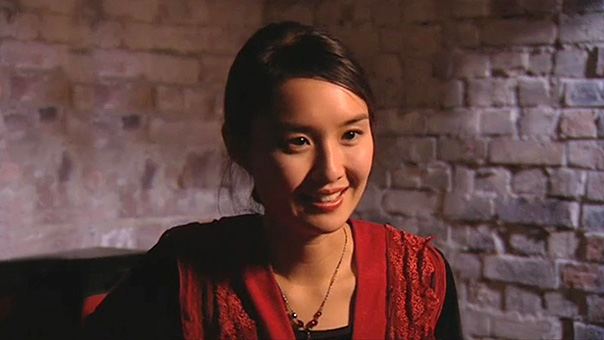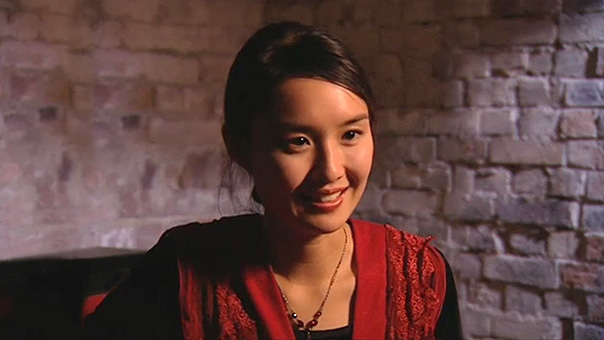Alice Pung: What I'm going to do is I'm going to read a bit from my book. Now, this is the very first chapter and in the very first chapters
of my book I wanted to capture the joy and the exuberance of new migrants who've recently arrived in Australia. Because a
lot of stories talk about the hardships back home but what I really wanted to capture in 'Unpolished Gem' was the extraordinary ordinariness of arriving in a new country and seeing everything for the first time. So this is about
my mother, my father, my grandmother and my Aunty Que. And:
Here they all are, standing carefully on the curb at a road crossing. It is early morning, and their grins are so wide it
seems that they all went to bed with clothes-hangers shoved in their mouths to save storage space at the Midway Migrant Hostel.
'Wah! Look at that!' cries my grandmother as they meander down the street draped in their De Paul finery, exclusive new arrivals
from the St Vincent's line. A polyester peasant blouse covers my mother's protruding belly with purple pansies, and she's
carefully co-ordinated her white low-heeled pumps with pink Adidas pants. Aunt Que sashays around in a brown dress and fifty-cent
jacket that has real fur on the collar and real mothballs in the pockets. She is followed by my father, sauntering in his
fine denim bell-bottoms with brown plastic thongs. Now, he's wearing one of those shirts with the wide flapping collars that
point like two arrows at the women on either side of him. Woohoo, look at my stunning sister and my spectacular wife it seemed
to say. Finally my grandmother pads along in a light-blue cotton pyjama suit she has sewn herself. A pair of sunglasses sits
on top of her head - a second pair of eyes gazing skywards, beseeching the Lord Buddha to bless St Vincent and his kind fraternity
for vesting the family with such finery.
'Wah!' exclaims my grandmother again and she's pointing to an old man pressing the squishy black-rubber button. The rest of
the gang turn and look.
'The cars stopped for that old man!' my grandmother says.
Tic-tic-tic-tic goes the traffic light, and as the green man flashes, the old man casts a suspicious look at the crew pointing
at him before hobbling quickly away on the other side of the road.
'Wah!' exclaims my mother.
'Look over there! On the other side! Those cars even stopped for the little girls!'
Now, two bored ten-year old girls with flouncy balloon skirts sewn to the elastic waistband of their neon biker-pants walk
across the road, dappling the bitumen with pastel dribbles from their melting Peters ice-creams. My father stands in front
of the yellow pole and presses the little rubber button again.
'Even Mother can do it! Watch me do it again! But try not to gawk like Guangzhou peasants, please, if you can help it.'
So my grandmother ignores the comment and she looks up at the lights. 'We wait for Mao Ze Dong man to disappear before we
move.' She instructs. 'He stops everything.' She is getting the hang of this.
As the little Red Man disappears and the little Green Man reappears, the crew hobble to the other side in beat with the ticking
traffic lights. Back where by father came from, cars didn't give way to people, people gave way to cars. To have a car in
Cambodia you had to be exceedingly wealthy.
And if you had money, it meant that you could drive at whatever speed you pleased. So, if the driver zipping down the country
road accidentally knocked over a peasant farmer, he knew he'd better zoom away quickly because the whole village might come
and attack him with cleavers.
The little Green Man was an eternal symbol of government existing to serve and protect. And any country that could have a
little green flashing man was benign and wealthy beyond imagining.
Thank you.
